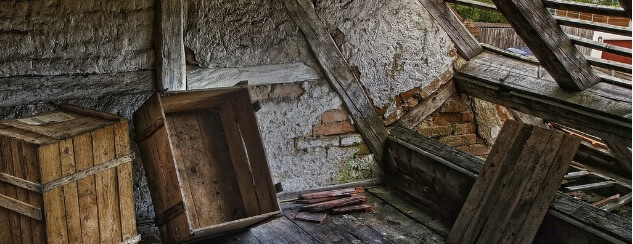Winter weather can wreak havoc on your roof. The combination of high moisture and constant freezing and thawing means winter weather can easily worsen any existing roof damage and could mean more work and money put your way. Cracked, peeling, or rotted shingles can quickly turn into a major problem over the winter and could potentially lead to structural damage. As well, any small gap in the flashing around your skylights, chimneys, or roof vents could spring a leak and quickly lead to major water damage when all that snow starts melting off your roof. Unfortunately, requiring emergency roof repairs during the winter tends to be much more time consuming and expensive. It is essential you follow these simple tips to ensure your roof is ready for the winter weather before it sets in.
Have Your Roof Inspected in Late Summer/ Early Fall
Just as home security can allow you to monitor your home and protect against break-ins, regular roof inspections allow you to monitor your roof for damage and thus prevent leaks and water damage. The shingles on a roof are bound to become damaged over time due to constant exposure to the elements. However, these problems can turn much more serious over the winter. The continual freezing and thawing is liable to widen any cracks or holes, which can potentially lead to leaks, water damage, and possibly toxic mold growth. Therefore, it is always best to have your roof inspected before winter, as this way you can have any damage repaired before winter weather makes it much worse. Think about getting a gas monitor as well since these could make mold and escaping gases easier to spot.
Consider Attic Vents to Help Prevent Ice Dams
Ice dams can be a major source of leaks and roof damage. When the air in the attic is much warmer than the outside temperature, it causes the underside of the snowpack on the roof to melt. This melt water then typically refreezes as it approaches the gutters, which can eventually cause a massive ice dam to start backing up and thus preventing the water from draining properly. If left unchecked, these ice dams can easily cause leaks, flooded basements, and roof damage. Therefore, it is essential that you make sure your roof is properly insulated and well-ventilated. Having a properly insulated and ventilated attic helps to prevent the roof itself from warming up and thus stops ice dams from forming.
Don’t Forget Your Gutters
After a big snowstorm, the snow pack on your roof can contain a huge amount of water. In this sense, it is essential that you make sure the water can drain off your roof properly. Clogged gutters and downspouts will obviously affect their ability to drain water away from your house and can contribute to the formation of ice dams. Therefore, you’ll want to make sure to clean out your gutters and downspouts before winter sets in. This way, you can ensure you won’t have to attempt to do the job in the freezing cold. Another useful option to consider is having gutter guards installed as these will help to prevent leaves and other debris from getting inside your gutters and potentially clogging them up.
Trim Your Trees
Although this last tip might not seem like it has anything to do with your roof, it definitely does have something to do with prevent winter storms from causing roof damage. Heavy snow, ice storms and other severe winter weather has the potential to break off branches and entire limbs from your trees. Should these fall on your roof, they could end up causing serious damage. Therefore, it’s always a good idea to regularly trim your trees to remove any limbs that overhang your roof.
Winter is definitely one of the most wonderful times of the year. However, it can quickly turn into a nightmare should you suddenly notice a leak or your roof otherwise require emergency repairs during winter. For this reason, it is recommended that all homeowners take a few simple steps to ensure that their roof is ready before winter comes. Winter is coming…is your roof ready?







